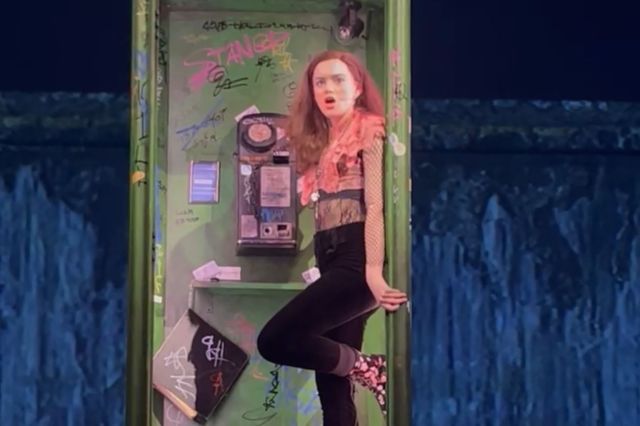Cuddles
All of Joseph Wilde‘s directorship – the script, the surrounding mise-en-scene and Cuddles‘ thematic concerns – are as of-the-moment as the Royal We in spring 2013. The play bares shockingly close relation to the Berry captivity case currently in the news as it documents the life of Eve, who lives caged in her sister’s attic.
Eve is a repressed teenager who exists in her mind as a vampire; but her real past tells a more earthly, albeit equally disturbing tale. Her sister is Tabby, who, when not supplying Eve with blood, works in the city, bloodsucking in a conventional, corporate way in order to better her career prospects. All the while she’s traumatised by her own slice of insular familial repression.
She’s admittedly as much of a “monster” as Eve; although her bloodsucking tendencies extend to more social-realist spaces: she plays dirty at work and, as a rather predictable final plot twist reveals, clearly manages her sociopathic disposition badly.
In this sense, Cuddles is less fantasy and more a documentation of disillusionment – and its methods work well. Wilde, like his namesake, is a dab hand at comic one-liners, managing to negotiate comedy and tragedy with force which feels classic in origin: “You don’t have to drink blood! – You can drink Fanta!” Tabby, at one point, yells frustratedly.
Cuddles is also damningly hellish. Eve’s penchant for feeding time reaps bold on-stage imagery: she aggressively bites Tabby’s neck at her refusal to give more blood, and devises her own method of obtaining “dinner dinner, not dinner” – eating a blood-soaked tampon which roused the most significant audience response of the evening.
Wilde has created a casual dictator in Tabby, the power of her moves akin to the precision of a cat on a hunt. Sadly, her character falls short by the conclusion, which in its briskness becomes quickly bogged down by the weight of knackered symbolism and an over-wrought sense of needing to tie things up which should have been left tantalisingly open.
Staging the horror of child imprisonment could so easily misfire, but, despite the conclusion, Wilde largely succeeds. This is thanks to brilliant writing and experimental uses of fantasy – which juggle comedy and tragedy alongside delusion and reality.
It’s set against the backdrop of a deeply troubled young professional who takes her own problems and molds a new generation of horror.
– Adam Bloodworth












